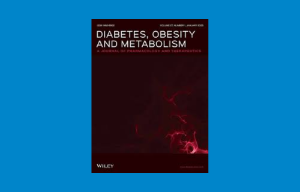Congratulations to co-author of the research paper “Glucagon-like peptide-1 analogues reduce alcohol intake”, UCD School of Medicine’s Professor of Chemical Pathology, Prof Carel le Roux and his collaborators Dr Maurice O'Farrell and Dr Faisal I. Almohaileb on their recently published research in Diabetes, Obesity and Metabolism.
 Alcohol use disorder (AUD) is a chronic relapsing condition that poses global health challenges. In 2019, alcohol use accounted for approximately 2.6 million deaths worldwide, representing 4.7% of all global deaths.1 Addiction pathogenesis involves neurobiological and psychosocial factors altering the brain's reward system within the mesolimbic dopamine pathway. Alcohol increases dopamine release, reinforcing substance-seeking behaviour and transitioning from voluntary use to compulsive use with impaired executive function.2
Alcohol use disorder (AUD) is a chronic relapsing condition that poses global health challenges. In 2019, alcohol use accounted for approximately 2.6 million deaths worldwide, representing 4.7% of all global deaths.1 Addiction pathogenesis involves neurobiological and psychosocial factors altering the brain's reward system within the mesolimbic dopamine pathway. Alcohol increases dopamine release, reinforcing substance-seeking behaviour and transitioning from voluntary use to compulsive use with impaired executive function.2
Treatments for AUD include behavioural, motivational, and pharmacological interventions. Medications approved for AUD include disulfiram, naltrexone, and acamprosate. However, the relapse rate is 70% within the first year of treatment.3
In preclinical animal studies, glucagon-like peptide-1 receptor agonists (GLP-1 RAs), such as liraglutide and semaglutide, reduced alcohol intake and attenuated alcohol-induced behaviours.4 These agents modulate the mesolimbic reward circuitry by decreasing dopamine release in response to alcohol thereby reducing the motivation to consume alcohol. They also affect stress regulation and cognitive functions which are critical factors influencing relapse propensity.5 We aimed to evaluate changes in alcohol use when patients were treated for obesity with GLP-1 RAs in a real-world setting.
The use of GLP-1 RAs in patients with obesity was associated with a significant reduction in alcohol intake and a weak positive correlation with weight loss. These findings suggest a potential therapeutic role for GLP-1 RAs in managing co-occurring obesity and alcohol use. Future randomized controlled trials with larger and more diverse populations are necessary to validate these results, explore underlying mechanisms, and assess long-term outcomes for integrated treatment strategies.
For the full paper: https://doi.org/10.1111/dom.16152